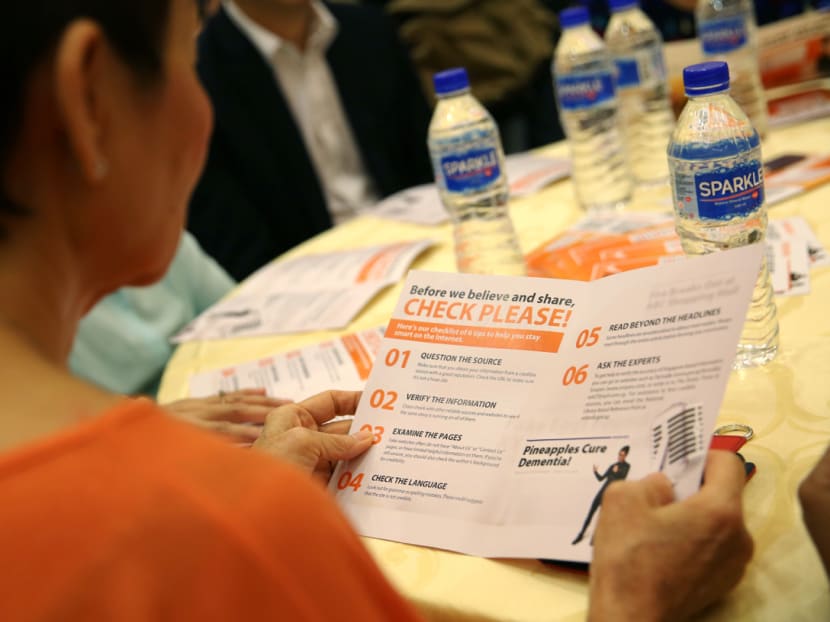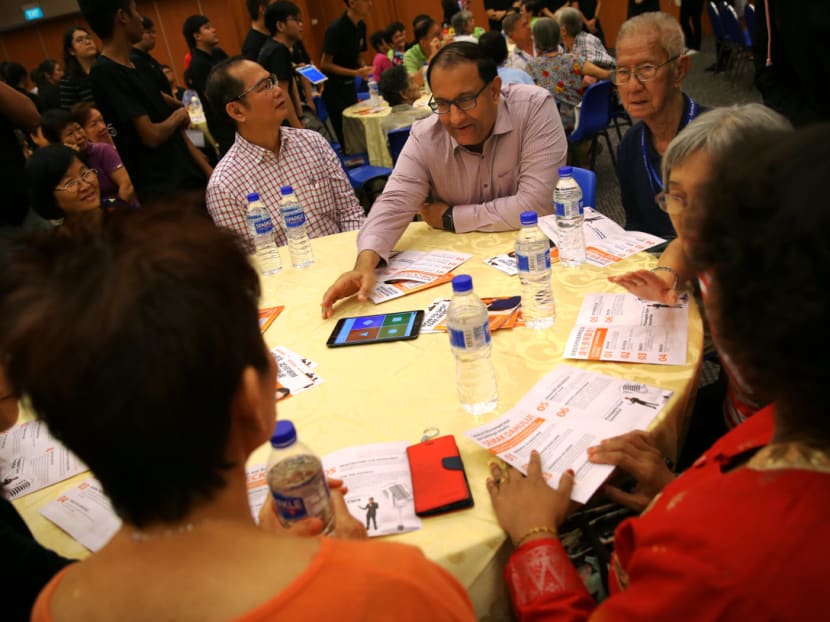Schools to get new toolkit to guide students on how to spot fake news
SINGAPORE — A Facebook post circulating online seems to contain fake news. But how do you test the veracity? Should you comment and share that post?

From the middle of this month, a new teaching toolkit will be distributed to all national schools from primary level to junior college, as a guide for teachers to educate pupils on fake news.
SINGAPORE — A Facebook post circulating online seems to contain fake news. But how do you test the veracity? Should you comment and share that post?
Students in schools will be taken through scenarios like this, when teachers use a new toolkit containing lesson plans to guide them on how to teach their pupils to spot fake news and understand the negative implications.
From the middle of this month, the New Media Literacies toolkit will be distributed to all national schools from primary level up to junior college, Communications and Information Minister S Iswaran said on Friday (Nov 2).

Speaking at an event at the Institute of Technical Education (ITE) College East campus, Mr Iswaran noted that legislation alone is not enough to deal with the scourge of fake news. It is only one part of the solution.
In September, the Select Committee on Deliberate Online Falsehoods set up by the Government had submitted its report with 22 recommendations.
Besides proposals to introduce new laws and criminal sanctions to cripple the revenue sources of “hired guns” as well as holding technology firms such as Facebook and Twitter accountable, the committee suggested strengthening public education to counter fake news.
Mr Iswaran, who is also Minister-in-charge of Cyber Security, said on Friday: “Education remains an important anchor in our strategy against deliberate online falsehoods. And we, the Government, is committed to equip Singaporeans to be more aware, be more discerning and also to be able to call out deliberate online falsehoods.”
He noted that Singapore can “truly be able to withstand this global threat” only if its citizens have the “capacity and confidence to discern fact from falsehoods”.
The toolkit was thus launched as part of a series of non-legislative measures to beef up public education to counter the threat of online falsehoods.
Schools are expected to receive the toolkit before the school term ends this year, and they can make use of it in their lessons in any subject area.
Ms Joyce Lee, a 32-year-old teacher and library coordinator at primary school CHIJ Our Lady Queen of Peace, told TODAY that students will be taught how to spot fake news by verifying the background of the author of the article and the credibility of a news site, for example.
“The learning materials are also tailored to their ages and level of understanding. So that they can comprehend the issue better through case studies that are relevant to the different age groups,” said Ms Lee.
Besides the school-going population, the Government is targeting the older generation with the launch of the Media Literacy Council’s fifth mini campaign on Friday. The council, which spearheads public education on media literacy and cyber wellness, has been running a Better Internet Campaign this year, and this fifth mini instalment will make use of an online video and quizzes, among others, to educate and help seniors spot fake news.
At the national level, the Ministry of Communication and Information, together with government agency Info-communications Media Development Authority, have started gathering feedback on how a fact-checking body can take shape, as part of the Select Committee’s recommendations to develop such fact-checking initiatives.
Separately, Mr Iswaran announced that the Government will launch a national information and media literacy framework in the first half of next year. With that, public agencies and course providers can refer to a set of content guidelines when they conduct courses on media literacy.
“What we have been seeing so far is different agencies responding to the challenge in their own ways because they have particular target audiences,” Mr Iswaran said. “We want to bring them together and ensure that we have some common reference points even though the efforts may be focused on different aspects of our society.”
More details on the framework will be released at a later stage.






